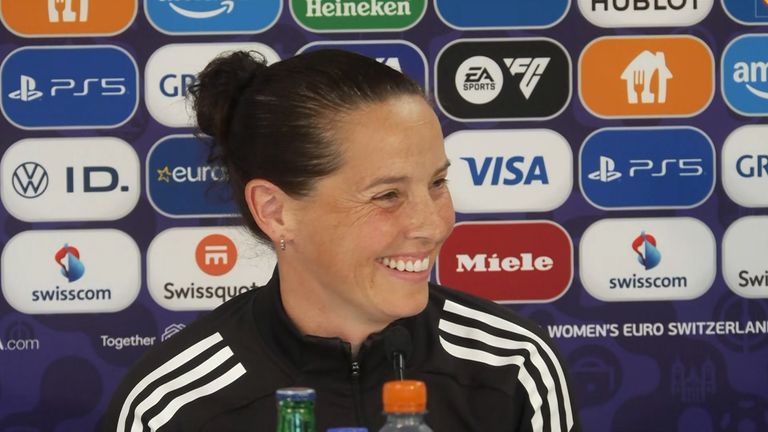'Worrying' rise to energy price cap - but here's how you can beat it by £180
The average energy bill will rise to £1,849 from April after the regulator Ofgem announced the new energy price cap this morning. The government and campaigners have described the rise as "worrying" - but experts say you can beat it.

Families 'betrayed' by Labour, Tories say
The price cap hike is a "betrayal" to families who were promised they would save £300 on their bills by Labour, the acting shadow energy secretary has said.
"Labour's election promise is shot and bills are on the rise," Andrew Bowie says.
"What's more, the government is not being honest about the trade-offs required to fund their fantastical energy policies - it will be families who are hit with the bill."
Meanwhile, Liberal Democrat leader Sir Ed Davey says the rise must be scrapped for pensioners who have had their winter fuel payments cut.
"Thousands of vulnerable people have shamefully been left to choose between heating or eating this winter," he says.
"The government has got to get a grip on energy bills and fast."
Energy secretary Ed Miliband has described the cap rise as "worrying" news for families - see his full comments in our post at 7.38am.
Consumers 'should be angry at gas companies making billions out of our misery'
The third consecutive rise in the energy price cap has left campaign groups calling for more government support for families in need.
Simon Francis, coordinator of the End Fuel Poverty Coalition, says it's crucial support is given to vulnerable households struggling with energy costs.
"Ministers are right to be focused on improving the Warm Home Discount scheme and on energy debt, which continues at record levels because households have to find more even money to use the same amount of energy," he says.
Caroline Simpson, campaign manager at Warm This Winter, describes the rise as "devastating".
She says consumers' ire should be directed at "profiteering energy giants" like Centrica and Norwegian-owned Equinor, the biggest supplier of gas to the UK, which "make billions of pounds each year out of our misery".
"It is therefore crucial that the government presses on with plans to fix this broken system and boost our energy security by rapidly increasing our supply of homegrown clean energy to free us from expensive gas and bring down bills for everyone for good," she says.
Why 'unwelcome' rise shows UK needs to move to clean energy, according to Ofgem director
We've just been hearing from Tim Jarvis, Ofgem's markets director general.
He says the price cap rise is "very unwelcome" for consumers, many of whom have been struggling for winter - but explains that "significant increases" in the wholesale price of gas forced the regulator to act.
"This is further evidence, to be honest, that we need to move away from that reliance on international gas and start looking at domestically generated energy," he tells Sky News Breakfast presenter Wilfred Frost.
For this reason, Jarvis says Ofgem is fully supportive of the government's plans to move to clean power by 2030, which he describes as "realistic".
"It's a big push. It's one of the government's missions. And so we are putting everything we can into it.
"We need to move away from being a price taker. And I think being able to rely on our own domestically generated, cleaner energy will mean that we'll see much more stable prices in the future."
Will prices drop in summer?
Looking ahead, Jarvis says it's "far too early" to say prices might fall in the summer due to the energy market being incredibly volatile.
"We often see quite minor things significantly changing prices because overall there is a shortage of supply on gas," he says.
"So we are hopeful. But it is very dangerous, I think, to make predictions."
Analysts predict energy prices to fall in summer
It's been bad news for consumers on energy bills this morning - but analysts predict prices will fall again in July.
Cornwall Insight predicts the average energy bill will fall by £93 from £1,849 to £1,756, which is £18 above the current price cap.
Discussions surrounding the end of the war in Ukraine have caused a dip in the energy market, which came too late to be priced into the April cap, the consultancy agency said.
"However, given the high levels of volatility in the market and the ongoing consultations from Ofgem on the non-wholesale elements of the cap, it is extremely likely that forecasts will change multiple times before the July cap is set in three months."
The UK is "particularly vulnerable" to the international market due to its reliance on imported gas, Cornwall Insight said.
"As the UK moves forward with the energy transition, and puts more money into renewable generation, it is hoped that this will reduce the need for imported energy and therefore lead to a greater stabilisation in energy bills."
Martin Lewis: Ditch 'pants price cap' for fixed deal - but wait a couple of hours
Consumer expert Martin Lewis has told energy users to ditch the "pants cap" and opt for a fixed deal.
Gas and electric prices will rise by 6.4% from 1 April, or £111 a year on average, the third consecutive hike in a row.
But wait for "a couple of hours" before switching, Lewis says - he's heard more tariffs are being launched.
"The cheapest year-long standalone fixes right now are about 4% less than the current cap, never mind once it rises in April," he says.
"So if you get a good fix now you lock in at a cheaper rate for a year, get price certainty, save instantly and save relatively more once we get to April."
Fixed deals lock customers in at one price for a set period of time - such as 12 months - which can be a money-saver if the price cap rises, but customers can miss out if it is substantially reduced.
The cheapest fix depends on where you live and how much you use, Lewis says.
If you don't want to fix, Lewis advised consumers with very low usage (under £80 a month) to look at British Gas & EDFs tracker deals which discount £50 off the annual standing charge.
Sophisticated users should look into Octopus or Tomato's time of use tariffs, he said.
"The current analysts' predictions are once the price rises in April, it will stay at roughly that rate for the next year.
"Though the further out you go the more crystal ball gazing that is (and the chance of peace in Ukraine, the middle east, or US pumping out oil could see energy prices fall).
"Still, the safe bet based on current predictions is to fix."
'Worrying news for families'
Energy secretary Ed Miliband says the price cap increase is "worrying news" for many families in the UK.
He says the government is "determined to do everything we can to protect people from the grip of fossil fuel markets".
"Expanding the Warm Home Discount can help protect millions of families from rising energy bills, offering support to consumers across the country," he said.
"Alongside this, the way to deliver energy security and bring down bills for good is to deliver our mission to make Britain a clean energy superpower - with homegrown clean power that we in Britain control."
You can beat the price rise by £179 - but you might miss out on any summer reductions
Consumer groups have urged customers to shop around for deals on the back of the energy price rise.
Suppliers offer fixed deals up to £179 below the April price cap, more than cancelling out the £111 increase to the average bill, according to Uswitch.
"Consumers can take action to avoid this. If you are still riding the rising rates, now is the time to find a better deal," said director of regulation Richard Neudegg.
"A fixed deal could protect you from further price increases for 12 months or longer."
It is worth noting that fixed deals mean you could miss out if the price cap dips again, which it may do in the summer months depending on progress towards a peace deal in Ukraine.
The cheapest fix on the market is £179 below the April price cap, offered by Outfox the Market.
The cheapest fixed deal from a large supplier, British Gas, is set at around £172 per year against the April rates.
"Unfortunately, there's no 'one size fits all' approach when it comes to fixing an energy deal - the best option for your home will depend on your individual circumstances," said Emily Seymour, energy editor at Which?
"As a rule of thumb, we'd recommend looking for deals cheaper than the price cap, not longer than 12 months and without significant exit fees."
Analysis: Why energy cap rise is very awkward for government
A cold, still winter in Europe is behind the energy price rise, says business and economics correspondent Gurpreet Narwan.
A lot of countries haven't been able to rely on wind power, instead using up their gas reserves, she says, increasing wholesale gas prices.
But they have been falling over the past couple of weeks over the possibility of a peace deal between Russia and Ukraine, meaning there could be a dip in the summer.
Nonetheless, energy prices remain higher than they were before the war in Ukraine.
It's a "very awkward" situation for the government, she says.
"This is a government that promised to get our bills down, and yet bills are still elevated.
"Higher energy costs also feed into general inflation as well, whether that's keeping ovens on in restaurants or powering our factories."
The government were planning to invest in sustainable energy to bring down prices, but it will be "a while before any of that pays dividends".
They will likely say that the price rise underscores how "vulnerable" the UK is the volatility in European energy markets, and the need to transition green energy at home, adds Narwan.
Energy price cap to rise by 6.4% in April
The average annual energy bill will increase to £1,849 from April - the third consecutive rise to the price cap by industry regulator Ofgem.
The new figure represents a 6.4%-a-year increase in the typical sum most households pay for gas and electricity when using direct debit - higher than experts expected.
Only those on fixed-rate deals, around seven million homes, will see no change until their current term expires.
The price cap limits the amount suppliers can charge per unit of energy and is revised every three months.
The decision comes as a consequence of rising wholesale gas prices since the start of the year.
Europe has seen a price spike due to strong demand in recent months, driven by colder weather than in recent years.
That, in turn, has sapped stockpiles and even prompted a warning last month from the owner of the UK's biggest gas storage facility that levels were "concerningly low".
The UK is heavily reliant on gas for its home heating and also uses a significant amount for electricity generation.
Energy bill rise expected for millions
A rise in energy bills is expected to be announced for millions of households at 7am.
Regulator Ofgem will reveal the new price cap for April until July, with experts forecasting bills will rise by about 5%.
Cornwall Insights predicted the typical annual household energy bill will rise by about £85 to £1,823.
An increase in the price cap would mark the third consecutive time costs have risen.
Ofgem changes the price cap for households every three months.
An increase in gas prices across Europe is behind the anticipated increase, caused by a slump in the amount of gas that is held in storage across the continent.
What is the energy price cap?
The cap sets a maximum price that energy companies can charge people in England, Scotland and Wales for each unit of energy they use.
It doesn't represent a maximum total bill. The headline annual figure represents an average bill based on these unit prices and the energy consumption of a typical household, plus fixed standing charges (which all households pay to stay connected to the grid).
While the price cap is likely to go up, in practice most people will pay less in the spring and summer months because they use less energy.
'I haven't been sent a council tax bill even after chasing - what do I do?'
Congratulations with your new home Susan, and I hope you're happy with it.
When a new property has been built, it can take some time for the property to be assigned a council tax band.
It is the builder's responsibility to inform local authorities of the completion date for a new build so the council can arrange for it to be assessed and given a band for a council tax bill to be issued. Delays often happen with councils contacting assessors.
You have done the right thing by contacting your local council, as it is their responsibility to arrange for your property to be assessed.
Even though they can't charge you until this process has been carried out, council tax is due on new builds from the completion date onwards - so you will have to pay eventually.
As you're in England, assessments are based on various factors, such as a property's:
- Size
- Layout
- Character
- Location
- Change in use
I suggest you compare similar properties in your area to gauge what band your property may be assigned to. Google Maps is useful for this. You can find out bandings and valuations from your local council website.
I would err on the side of caution and set aside a higher amount each month for when the bill eventually arrives, so you are prepared and have the money to cover the missed payments.
The council is likely to send you a bill including the months missed and adjust the remaining month's direct debits so you will pay higher amounts for the remainder of the financial year.
Check it's accurate and ensure you are eligible for any discounts such as single person occupancy. You may also qualify for a council tax reduction if someone in your house is disabled and you have adapted your property.
You may also be eligible for a Hardship Fund Payment if you receive council tax support. Your local Citizens Advice Bureau will be familiar with various entitlements you may be able to claim for and assist.
If your council tax bill is unaffordable, you can ask them to review it and adjust the payments. It's imperative that you are proactive and contact them first, as council tax arrears is a priority debt and costs can quickly escalate if ignored.
Usually, the VOA can get all the information they need from outside, so they won't need to disturb you. They usually take photos from outside like an estate agent would.
Interior inspections can only happen with your consent. VOA staff always carry and present ID cards including their photograph.
Do not allow anyone access if you have any doubts about someone who claims to need to inspect your home for council tax purposes.
Just Eat Takeaway.com agrees €4.1bn takeover
Just Eat Takeaway.com has agreed a takeover by a Dutch-based technology investor which says it wants to create a "European champion" for food delivery.
Prosus, which already has a 28% stake in global rival Delivery Hero, said its all-cash offer valued Just Eat at €4.1bn (£3.4bn).
It represented €20.3 per share on the Amsterdam exchange - a 22% premium on the highest value of its stock over the past three months.
Just Eat said the offer was unanimously supported by its management and board.
First 750 schools to get free breakfast clubs named
The government has announced the first schools in England that will get free daily breakfast clubs as part of a pilot scheme.
Some 180,000 children will be offered breakfast in schools before class, with the scheme then expected to be rolled out nationwide later.
Over a third of the schools in the pilot scheme are in deprived areas.
To find out if your child's school is included, you can check the government website here.
Schools taking part are being given a set-up payment to cover equipment and materials.
They will then be reimbursed by the government based on attendance at the clubs, so a school with 50% participation in the scheme could get £23,000 a year.
The government said the meals would be "healthy, varied and nutritious" and include offerings such as wheat bisks, porridge, fresh fruit and yoghurt.
The schools are only across England, but Wales and Scotland already have programmes to provide free breakfasts to children in primary schools.
As Spain ends its 'golden visa' scheme, these two holiday hotspots are hoping to attract more British expats
For years Spain has welcomed British expats hoping for a sunnier and more relaxed life through its "golden visa" scheme.
The scheme has allowed Britons and other non-EU nationals to relocate to Spain with minimal paperwork so long as they buy a property worth over €500,000 (£412,000) or make a significant investment.
But the country has chosen to end the scheme on 3 April due to concerns over housing, security, and fairness for local residents - and some of Spain's neighbours are taking advantage.
Greece and Portugal are expecting potentially substantial financial boosts as they are planning to streamline their own golden visa schemes to attract wealthy expats.
They have simplified the process for non-EU individuals to settle via investment by replacing the old paper system with a new digital platform.
The change has already seen a surge in demand, particularly from British and US citizens, according to a report in The Express.
Greece is able to grant residency within 60 days, making it one of the quickest golden visa schemes.
Portugal has got rid of the option to invest in property, but it will still offer residency in return for fund investments.
Currently, demand is so high that its digital platform is having to contend with a backlog of between 45,000 and 50,000 applications.
-SKY NEWS







